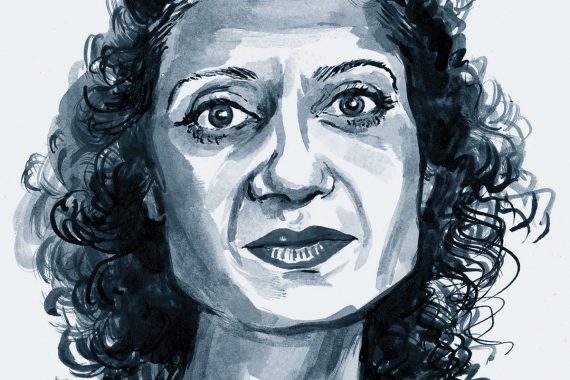Dr Shaba Nabi is all for patients having access to their records, but she strongly supports an opt-in model rather than an opt-out one
One thing that helps put patients at the front and centre of everything we do is the fact that we are all patients first and doctors second. From our childhood scrapes and obstacles on our parenting journey to more serious middle-age pathology, we’ve all experienced life on the other side of the desk. This enables us to understand what we might have in common with patients.
I am passionate about empowering patients to make the right decisions for themselves, which includes having access to their medical records so they can take a more active role in managing their health. For the past six months I have been encouraging patients to apply for access to their online records whenever tests are requested, so we don’t have to devote scarce time to explaining normal results.
So you would be forgiven for assuming that I would be a cheerleader for NHS England’s contractual change, starting this month, allowing patients automatic access to their records via the NHS app. But while I am in favour of patient access to notes, I strongly support an opt-in model rather than an opt-out one.
The problem with having to opt out is there is absolutely no informed consent around the consequences of unbridled access, which potentially includes a cancer diagnosis landing on your phone at 7pm on a Friday night. This, and many other issues, have been addressed by Dr Amir Hannan, who has been supporting his patients to access their medical records at his Greater Manchester practice for nearly 20 years. The practice has a robust consent process that includes a questionnaire asking patients to reflect on how they would act if faced with a bad news dump or a data breach.
I asked my 14-year-old daughter, who suffers with anxiety, what she would do if she saw a potential cancer diagnosis on a Friday night and couldn’t speak to her practice until Monday. She told me she wouldn’t sleep for three days and would consider calling 999.
She went on to tell me she would prefer to receive the news directly from a doctor who could respond to all her questions in the moment. Yet if she was to take on responsibility for her own repeat medication and downloaded the NHS app (which is permissible from the age of 13), she might then have no choice about what information popped up on her screen.
Of course, some of these situations can be mitigated by ‘hiding’ the relevant results/letters until a patient dialogue has occurred, but those of us who live in the real world know how vulnerable to failure this would be. And the impact of some diagnoses delivered without context can be seen across the pond in the US, where online records access was mandated in April 2021.
Fuelling anxiety in an unprepared patient, with all the subsequent workload consequences for primary and secondary care, is significant but not necessarily dangerous. A potentially fatal scenario is one where a patient is in a coercive relationship, but not on any safeguarding registers, and is placed at risk through their online records access. In the current climate of social media and phone hacking, the prospect of a coercive partner getting hold of passwords or records most concerns me, as the consequences are unthinkable.
I recall seeing a poster for the door of an Australian GP, which read: ‘Your health is my concern but your responsibility.’ I can’t help feeling the opposite applies to medical records, which should be the patient’s concern but their doctor’s responsibility.
Dr Nabi is a GP trainer in Bristol. Read more of her blogs here

















We all know its daft and full of problems – but when did NHS Digital ever engage meaningfully with reality?
Practices remain Data Controllers. Legally, nothing can be released without practice consent. This surely means that practices can block access to all patients, and ask them to apply in writing. A list could then be created of patients who want access. We could then call patients in – as funding and capacity allows, say one per month – for a 20 minute conversation about what getting access to the full notes really means, talking through scenarios like the one you describe. If they still want it, then they can have it. Obviously this will generate a list which will take many, many years, but still fulfils our contractual obligations. In the meantime there is always SARS.
If NHSE are serious about this, they can fund extra capacity so that we can have these conversations, fund the required staff training, and fund the extra time needed to record clinical notes in a way that patients can understand and which minimises misunderstandings.
Also… where is the BMA and GPC in all of this? It is only 10 days away.
It’s all ‘down the rabbit hole’ with Unicorns shitting Rainbows. NHSE are akin to psychedelia!
I understand the intention is to make access retrospective in the coming months. Notes written purely as an “aid memoir” for the Dr with absolutely no suggestion when written that they would be accessed directly by the patient at a later date will be poured over by a significant minority of obsessive patients. I wasn’t writing notes back then for anyone but other healthcare workers to view. Historical notes will be wide open to rampant misinterpretation. This will be like opening a pandora’s box and lead to retrospective lunacy. Check your MDU/MDDUS membership everyone. If you’ve been doing medicine for any length if time you’re going to get letters about stuff you wrote 10 years ago in a Friday afternoon clinic of 40 ‘emergencies’ . Seriously starting to think wether ow is the time to get my name off that GMC register. ‘If you’ve done nothing wrong you have nothing ti fear?’ – don’t believe it.